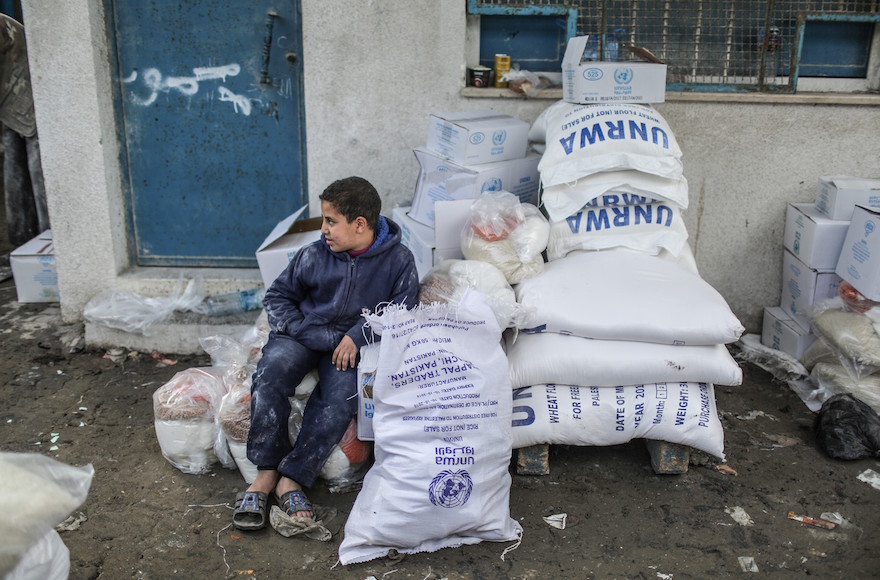WASHINGTON (JTA) — The Trump administration froze more than half its funding for the U.N. organization assisting Palestinian refugees and their descendants, citing what it depicted as the oversize U.S. role in the funding.
The State Department said Tuesday that it had put a hold on $65 million of the $125 million now due to UNRWA, which distributes its assistance in the Gaza Strip and the West Bank, as well as to refugee camps in Jordan, Syria and Lebanon.
President Donald Trump and the U.S. ambassador to the United Nations had threatened in recent weeks to cut the funds after the Palestinian Authority walked away from an attempt to revive the peace talks, citing among other factors Trump’s recognition of Jerusalem as Israel’s capital.
However, State Department spokeswoman Heather Nauert, announcing the cut to the United Nations Relief and Works Agency, said the decision had more to do with what the Trump administration sees as an imbalance in the U.S. contributions.
“Our main point today is asking other countries to step up to the plate, not asking the United States to be the single largest donor,” she said, briefing reporters.
Asking other nations to increase funding for international endeavors is consistent with a number of other Trump administration initiatives, notably in demanding greater non-U.S. funding for the NATO alliance.
Last year, the United States paid about 30 percent of UNRWA’s funding, $370 million — more than twice the second largest donor, the European Union.
Israeli Prime Minister Benjamin Netanyahu has said that long term, UNRWA’s mission should be transferred to other agencies, but has stopped short of endorsing an immediate cut in funding. Israeli security officials see the agency’s role as critical in preventing a collapse of Palestinian society, particularly in the Gaza Strip.
Nauert said administration officials rejected freezing the entire transfer because it would “have a negative impact.”
JTA has documented Jewish history in real-time for over a century. Keep our journalism strong by joining us in supporting independent, award-winning reporting.






